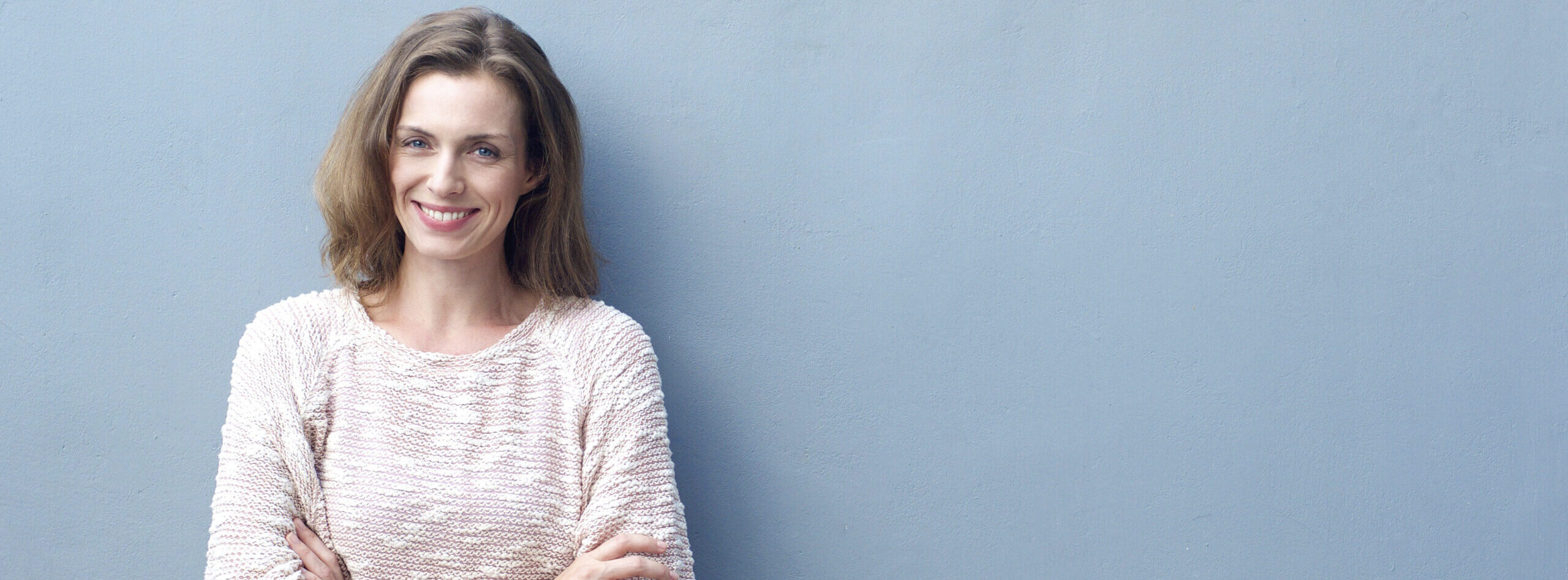How age-related female infertility (advanced maternal age) affects a woman’s ability to conceive
As women reach an advanced maternal age, their fertility naturally declines. This is because women are born with a finite number of eggs, and the number of eggs in their ovaries decreases as they get older. Additionally, the quality of eggs can decline with age. This is because older eggs are more likely to have chromosomal abnormalities.
Our New Jersey fertility doctor helps women understand why it’s harder to conceive as women get older, and the treatment options available to build a family.
Causes of age-related infertility (advanced maternal age)
Decline in the number of eggs in a woman’s ovaries
The number of eggs in a woman’s ovaries starts to decline at around age 30. By age 40, the number of eggs has decreased by about half. By age 50, most women have gone through menopause, which means that they no longer have regular menstrual cycles and are no longer able to get pregnant naturally.
Decline of egg quality
The quality of eggs can also decline with age. Older eggs are more likely to have chromosomal abnormalities, which can lead to miscarriage or birth defects. The risk of chromosomal abnormalities increases significantly after age 35.
The decline in fertility with age is due to several factors, including:
- A decrease in the number of eggs in the ovaries
- A decrease in the quality of eggs
Other physical reproductive declines caused by age
A woman’s age can also lead to other physical reproductive issues, including:
- A decrease in the ability of the ovaries to release eggs.
- Aging of the uterus that may occur due to scarring or infection.
Advanced maternal age increases the risk of miscarriages and babies with birth defects
At an advanced maternal age, women are at an increased risk of having a miscarriage or a baby with a birth defect. The risk of miscarriage increases significantly after age 35, and the risk of birth defects increases significantly after age 40.
Miscarriage risk
The risk of miscarriage is about 15% for women under age 35. The risk of miscarriage increases to about 20% for women between ages 35 and 39, and to about 30% for women over age 40.
Risk of birth defects
The risk of birth defects is about 3% for women under age 35. The risk of birth defects increases to about 5% for women between ages 35 and 39, and to about 10% for women over age 40.
Fertility treatment options for women who want to conceive at an older age
There are a number of fertility treatment options available to women who are struggling to conceive at an older age. These options include:
In vitro fertilization (IVF)
IVF is a procedure in which eggs are retrieved from the ovaries, fertilized with sperm in a laboratory, and then transferred back into the uterus.
Egg donation (using donor eggs)
Egg donation is a procedure in which eggs are donated by another woman, and then fertilized with sperm and transferred back into the intended mother’s uterus.
Once a woman hits her 45th birthday, we don’t see much success in using her own eggs in fertility treatment due to a steep decline in egg viability (quality), and will recommend using donor eggs for treatment. For a woman age 45 or older still wanting to pursue reproductive assistance using her own eggs, we will likely connect her with a fertility doctor that specializes in advanced maternal age treatment for this age group.
Our fertility doctor develops treatment plans to help women get pregnant
If you are a woman who is considering having a baby at an older age, it is important to talk to your doctor about your fertility options. Our New Jersey fertility doctor can help you to assess your individual risk factors and to develop a treatment plan that is right for you.
Here are some additional things to keep in mind if you are considering having a baby at an advanced maternal age:
- It is important to get regular prenatal care. Prenatal care can help to identify and address any potential health problems that may arise during pregnancy.
- It is important to take good care of yourself during pregnancy. This includes eating a healthy diet, getting regular exercise, and getting enough sleep.
- It is important to talk to your doctor about your fertility options if you are considering having a baby at an older age.
If you are a woman of advanced maternal age who is struggling to conceive, there are resources available to help you. You can talk to your doctor, a fertility specialist, or a support group. Contact us to make an appointment with Dr. Glatstein to discuss how age affects fertility and to make a treatment plan.

